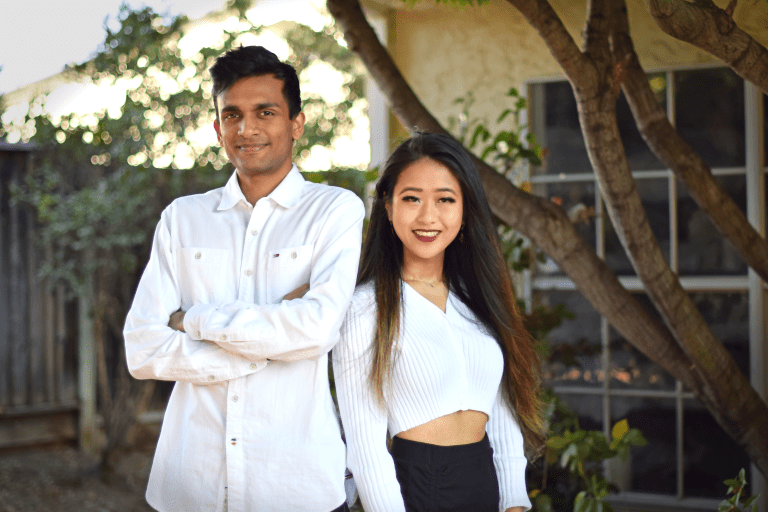Mary Zhu ’21 and Amay Aggarwal ’21 M.S. ’21 launched Develop for Good, an organization that connects college students interested in programming with nonprofits to create socially impactful digital tools. The startup has partnered with 46 nonprofits and matched over 300 volunteers since this March.
As computer science majors, Zhu and Aggarwal noticed that their peers sought to apply their skills to design and development projects, a need exacerbated by the economic impact of the pandemic.
“We found that it’s really hard to go out and create a website [or] an application if you don’t have a good idea,” Aggarwal said. “At the same time, we also identified that nonprofits are looking for this exact kind of work to be done.”
After reaching out to organizations for partnerships, the pair disseminated opportunities over departmental mailing lists, but interest quickly grew beyond Stanford. In their most recent round, they said they had over 30 open projects with nonprofits, attracting students across the nation at universities such as MIT, Brown and Columbia.
“A lot of the projects that deal with ongoing, urgent issues have been really impactful,” Zhu said, citing those that serve vulnerable communities affected by the pandemic.
Volunteers emphasized that people of all coding backgrounds and interests can engage with the projects to which Develop for Good matches them, working with nonprofits ranging from Terra Firma to Save the Children. Aggarwal said that one of the most fulfilling aspects of his work is seeing volunteers contribute to causes close to home.
With the Ronald McDonald House, student developers are working on an informational app to help families who travel long distances for their children’s medical care safely obtain meals and housing. And at the Dana Farber Cancer Institute (DFCI), volunteers are creating a user-friendly website for cancer patients to learn about and access their genomic data.
Austine Peng, a DFCI volunteer and UC Berkeley junior, chose Dana Farber because her mother was diagnosed and treated by the institute recently for cervical leiomyosarcoma, a rare cancer.
“It was through this experience that I realized the value of genomic sequences for both cancer patients in regard to more personalized, life-saving treatment, but also for the patient’s family in terms of preventative care,” Peng said.
Jeong Shin ’23, a volunteer at one of Develop for Good’s COVID-relief initiatives and who has written for The Daily, said she also enjoys contributing to nonprofit causes and developing her skills. She added that she is looking forward to connecting with people outside of Stanford through other Develop for Good volunteers across the country.
Zhu said that by forming small teams, Develop for Good aims to build a tight community of students and deliver high-quality products. The organization matches five to seven volunteer developers and designers to each project. Volunteers work with their team and nonprofit partner for 10 weeks.
Develop for Good’s Chief Operating Officer Isabel Wang ’21 said her work through the organization for UNICEF’s The Internet of Good Things (IOGT) and U-report initiatives has helped her leverage her CS background alongside her interests in healthcare, educational empowerment and social equity for nonprofit work.
“With IOGT, we were all working together on a team and teaching each other — as though we were all a part of the same class,” she said. “I think for a lot of what we learn within Develop for Good in a few months, you would have to take multiple classes.”
“You can really have an impact on people’s lives,” Wang added, citing how the organization she works with serves millions worldwide.
As their portfolio of projects increase, Zhu and Aggarwal hope that their organization will increasingly involve students from a diversity of backgrounds and become financially self-sustaining. By charging a small sum for each project, they hope to pay for basic operational costs, as well as sponsor students who cannot provide unpaid work.
Ultimately, the duo’s organization goals stem from their desire to use their computer science education to help others.
“We just want everyone to be happy,” Aggarwal said. “We want our nonprofit clients to be happy with the outcome that they’re getting, [and] we want our students to and feel that they’re making a lot of impact and contribution to causes that they care about.”
Contact Jodie Meng at jomeng ‘at’ stanford.edu.
